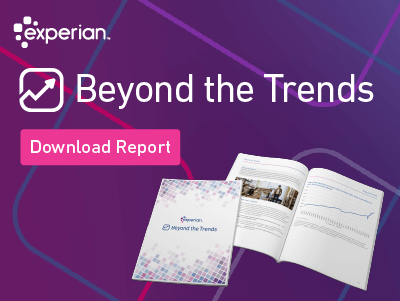
Welcome to the Experian Thought Leadership Hub
Gain insights into the fast-changing world of consumer and business data through our extensive library of resources.
387 resultsPage 37
 Report
Report
Small businesses are struggling to access inventory, components, and staff due to the pandemic's impact on the supply chain. However, emerging small business growth has been explosive during the pandemic, with businesses adapting to the high demand, low supply market by focusing on digital experiences. Small businesses are also focusing on diversity, equity, and inclusion initiatives to create a more inclusive small business ecosystem. Subscribe to this quarterly Report here or follow our full suite of quarterly insights on our Commercial Insights Hub.
 Webinar
Webinar
In this 60-minute webinar, learn more about the personal loan landscape and discover tools to develop an effective personal loan strategy that can fuel growth in any environment.
 Webinar
Webinar
Experian and Oxford Economics shares and discusses critical insights in the latest Q3 2022 Main Street Report. This Webinar includes: - Leading Experts on Commercial and Macro-Economic Trends - Credit insights and trends on 30+ Million active businesses - Industry Hot Topics Covered (Inclusive of Business Owner and Small Business Data) - Commercial Insights you cannot get anywhere else - Peer Insights with Interactive Polls (Participate) - Discover and understand small business trends to make informed decisions - Actionable takeaways based on recent credit performance.